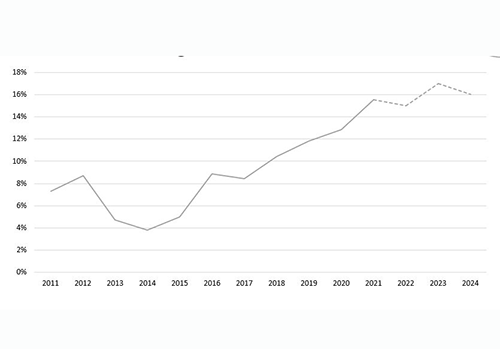Namibia continues to accumulate debt while failing to produce much-needed economic growth.
The debt, therefore, is accrued for consumption purposes, a fatal error, according to experts.
Earlier this year, finance minister Iipumbu Shiimi said Namibia’s deficit is projected to average about 5.5% of the gross domestic product (GDP) during the medium-term expenditure framework, thereby necessitating a balanced fiscal consolidation policy stance during this period.
Shiimi admitted at the time that given the outstanding debt stock, the projected budget deficit is still relatively high.
According to the Bank of Namibia (BoN), the debt stock of the central government rose over the financial year 2021/22 to the end of March 2022.
The total government debt stock stood at N$125.7 billion at the end of March 2022, representing yearly and quarterly increases of 13.9% and 1.1%, respectively.
The increase, on a yearly basis, is driven by a rise in the issuance of both Treasury Bills and Internal Registered Stock.
Meanwhile, external debt declined year-on-year, owing to the redemption of one of the Eurobonds in November 2021.
The bank added total debt as a percentage of GDP stood at 68% at the end of March 2022, representing yearly and quarterly increases of 8.7 percentage points and 0.7 percentage points, respectively.
Going forward, the total debt stock is anticipated to rise to N$165.5 billion over the MTEF period, which represents 75.2% of GDP.
The debt-to-GDP ratio continued to rise further above the SADC benchmark of 60% of GDP.
Last Wednesday, the Friedrich Ebert Stiftung held a public dialogue, focusing on foreign borrowing/debt and its implications on socio-economic livelihoods in Namibia.
At the occasion, an economist from stock brokerage Simonis Storm, Theo Klein, warned: “If debt continues to rise, and it’s being used mainly for consumption purposes, this will have serious negative long-term effects on our economy and for future generations, because future generations will inherit the great amount of debt, which they will need to repay with a tax revenue”.
According to Klein, for the last 10 years to a great extent, domestic debt has been growing at a faster rate than foreign debt.
This translated into higher debt servicing costs as a percentage of revenue for the country.
This is concerning because debt is growing much faster than tax revenue, which stands for government revenue.
He said future generations will have to do a significant amount of investment to improve the growth rates of the economy to create jobs.
If debt continues to grow faster than your revenue, at some point, you will have less money available to spend on developmental projects.
The Namibian economy was hard hit by the commodity price boom that came to an end, then the prolonged drought that negatively affected agriculture, which forced government to start doing fiscal consolidation in 2016 – not leaving the impact of Covid-19.
“But if our economy doesn’t start showing much higher growth rates, and they continue as it is at the moment, then as we move along into the future, government will have less and less money available to spend on other crucial social programmes, such as health and education – and it will have a negative impact on an average Namibian through this growing debt issue,” he stated.
Furthermore, the economist added due to the inflationary pressure the community has been going through, the overall standard of living of Namibians is expected to deteriorate, and it will get worse if Namibia continues to not use debt wisely.
He was concerned that more Namibia can expect asset inequality if the situation remains.
The average Namibian, according to him, will be impacted negatively if the debt situation does not improve.
Last year, National Unity Democratic Organisation parliamentarian Utjiua Muinjangue expressed concern over the country’s ballooning debt, saying borrowed funds are for consumption and debt servicing – and not for productive means.
While motivating the budget tabled by finance Shiimi, Muinjangue said the future generation should not be burdened by the sin of their parents.
“As government, we should, by all means, avoid a situation where our children’s children would have to pay for our current consumption without anything to show for it,” she said.
– mndjavera@nepc.com.na


